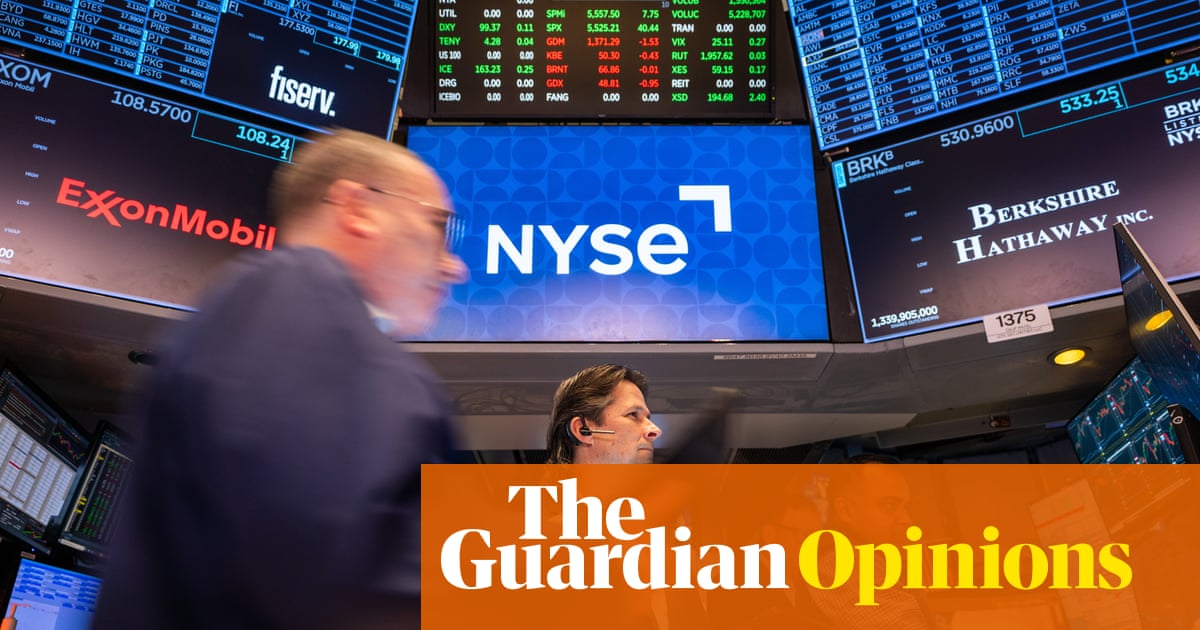The grass is not always greener on US stock markets

Donald Trump is doing an excellent job of demonstrating that US stock markets don’t always outperform European ones. On-off tariff wars, threats to fire the head of the Federal Reserve and general unpredictability have prompted a reappraisal of boring old Europe. The S&P 500 is down 6% this year, versus a gain of 2.5% for FTSE 100 index and a 3% improvement in the pan-European Stoxx Europe 600. The differences aren’t enormous but they mark a reversal from recent years. Will that be enough to stop the “exodus” of UK and other European companies to the supposedly higher-valued and more liquid US markets? The thesis – plodding European versus dynamic US – has been the popular narrative for years as the likes of the plant hire group Ashtead, the plumbing group Ferguson and the Paddy Power-owning Flutter have moved their primary listings to the US. It has become obligatory to describe every departure as “another blow” to London. Well, here’s a “reality check” report from the New Financial thinktank that ought to be digested by any footloose board of a UK-quoted company that imagines its share price would be higher if only the listing was in the US. It ain’t necessarily so. The report identifies 130 European companies, including 51 UK ones, that have moved to the US over the past decade, whether by switching their listing, listing for the first time or merging into a US shell entity. The collection is large, no question – worth $676bn (£504m) in today’s money at the time of the moves. On the other hand, it’s also just 2% of the number of European companies. View image in fullscreen The London Stock Exchange. The FTSE 100 index has gained 2.5% this year. Photograph: Tolga Akmen/EPA But the startling finding is the post-switch performance. The analysis shows that 70% of European companies that have moved to the US are trading below their listing price; fewer than a fifth have beaten the S&P 500; and three-quarters have not beaten the European market after their move. The numbers, it should be said, are skewed by the appalling performance of European companies that joined the brief US fad for SPACs, or “blank cheque” special purpose acquisition companies. Of the 42 firms that took that route, nine went to zero (think Cazoo and the electric van firm Arrival). But even among the mature companies that simply switched their listings, the share price performance amounts to roughly a par score: 44% have performed better than the European market since they moved. Why might that be? Simply because the valuation premium on US markets (about 30% at the last count) doesn’t translate at the level of individual companies or sectors. A large chunk of the go-go US rating is accounted for by the massively greater weighting of highly valued and large technology firms. As New Financial puts it: “US stocks have a higher valuation because they have higher growth and higher return on equity, not because they happen to be listed in the US.” None of which is to say that European firms should never move. For some, it will make sense. Revenue-wise, Ashtead and Ferguson had morphed into US entities. Sweden’s Spotify had probably outgrown its home market. Sadly, it was probably commercially reasonable for SoftBank to relist Arm Holdings, the UK’s most celebrated tech firm, in the US where it could rub shoulders with the likes of Nvidia. And the US undoubtedly has advantages in biotech. The point, though, is that the grass is not always greener, except (from the point of view of executives) when it comes to boardroom pay, which one suspects is a swing factor in some cases. There have been successes – Arm is definitely in that camp – but the overall performance of departers “suggests that moving is not a panacea”, says the report. It is not prescribing complacency and is full of ideas to improve European stock markets by making them less fragmented. But, in the hierarchy of market-related things to worry about, US drift is probably not top of the pile, especially if Trumpian chaos is now deterring corporate tourists. Instead, here is the report’s genuinely alarming statistic: 1,000 listed companies in Europe, with a combined value of more than $1tn, have been acquired by private equity and privately held companies in the past decade. The march of private equity still feels like the bigger threat to stock markets.


















